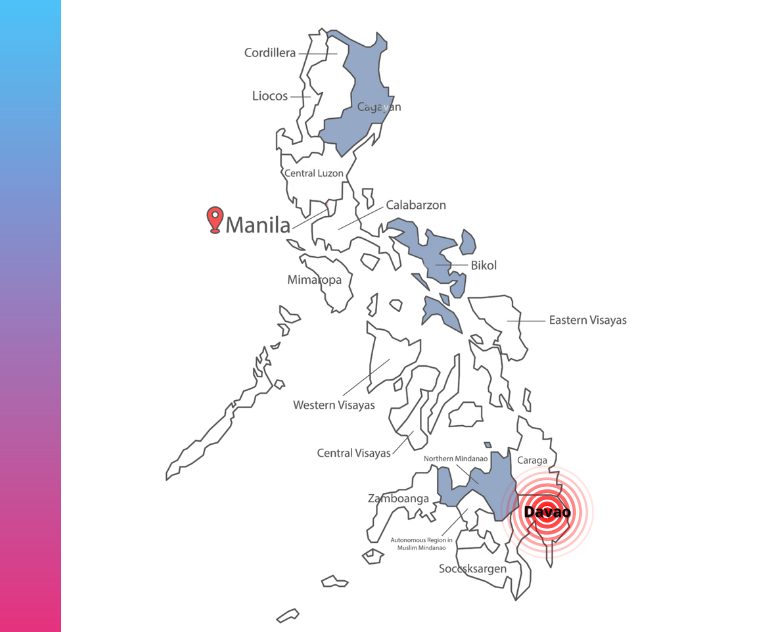Table of Contents
Neurodivergent individuals can bring unique strengths to teams, from exceptional focus and pattern recognition to creative problem-solving and technical expertise, but are often overlooked.
As companies strive to build more innovative and resilient teams, neurodiversity in the workplace is both a moral imperative and a competitive advantage.
But to fully unlock this potential, organizations must move beyond surface-level awareness and take meaningful steps to foster neuro-inclusive environments, starting with how they recruit, onboard, and support their people.
What is neurodiversity?
Neurodiversity is the concept that neurological differences are a natural and valuable part of the human experience. These differences include autism, ADHD, dyslexia, dyspraxia, Tourette syndrome, and other cognitive variations.
Rather than seeing these conditions as deficits, the neurodiversity movement encourages society to view them as variations in brain function that bring unique strengths and perspectives to any function.
Coined in the late 1990s by sociologist Judy Singer, the term “neurodiversity” promotes a more inclusive and respectful view of individuals with cognitive differences.
Neurodiversity in the workplace
Workplaces that embrace neurodiversity benefit from a wider range of problem-solving approaches, creative thinking, and attention to detail. Neurodivergent employees often excel in roles requiring pattern recognition, data analysis, and innovation.
However, traditional recruitment and management processes can unintentionally exclude or disadvantage these individuals. The Harvard Business Review mentions that the neurodiverse population remains a largely untapped talent pool, even though they present exclusive opportunities.
By fostering an inclusive environment, companies can tap into a largely underrepresented talent pool and gain a competitive advantage in today’s global economy, especially in industries that currently present a talent shortage, such as STEM.
Legal protections around the world
Many countries have introduced legislation to protect neurodivergent individuals in the workplace, for example:
- Australia: The Disability Discrimination Act 1992 supports equal opportunity and access to employment for neurodivergent individuals.
- Brazil: The Quota Law (Article 93 of Law 8.213/91) mandates that private companies with 100 or more employees hire a certain percentage of individuals with disabilities or those who have been rehabilitated.
- Chile: Law 20,422 (2010) ensures companies with 100 or more employees are required to have a 1% quota of their workforce comprised of people with disabilities or disability pension recipients, which can be met through direct hiring, service agreements, or monetary donations.
- France: The “Disability Act” (Loi pour l’égalité des droits et des chances, la participation et la citoyenneté des personnes handicapées) of 2005 requires employers with at least 20 employees to employ a minimum of 6% disabled workers in their total workforce.
- United States: Under the Americans with Disabilities Act (ADA), employers are required to provide reasonable accommodations for employees with disabilities, including many neurodivergent conditions.
However, even with legal protections in place, cultural understanding, and organizational commitment are essential to ensure neurodivergent individuals feel genuinely included, not just legally accommodated.
How to support neurodiversity in the workplace
Fostering a truly inclusive workplace means going beyond compliance and actively celebrating neurodiversity in the workplace. Here’s how companies can incorporate neurodiversity into key HR functions:
1) Recruitment and onboarding
Inclusive hiring and onboarding practices are essential for reaching neurodivergent candidates:
- Rethink job descriptions: Avoid jargon or unnecessary requirements. Focus on essential skills.
- Diversify interview formats: Traditional interviews may disadvantage neurodivergent candidates. Consider task-based assessments, written responses, or extended trial periods.
- Partner with neurodivergent advocacy groups: National organizations or local nonprofits can help connect you with talented individuals and provide guidance.
An employer of record (EOR) can also play a role in recruiting neurodivergent talent globally, ensuring compliance with local laws while helping companies access a more diverse pool of candidates.
2) Employee retention


Retention starts with a supportive culture and ongoing adjustments:
- Provide mentorship and peer support: Buddy systems and mentoring programs help neurodivergent employees feel more connected.
- Recognize different working styles: Focus on outcomes rather than traditional metrics like hours logged or meeting participation.
- Adapt team-building opportunities: Traditional team-building activities can unintentionally exclude neurodivergent team members. So, prioritize sensory-friendly environments, encourage opt-in participation, and focus on shared interests
3) Cultural fit
Rather than expecting employees to conform, companies should embrace culture, inviting diverse perspectives to shape workplace norms.
- Educate your workforce: Host workshops and training on neurodiversity to build understanding and empathy.
- Foster psychological safety: Create environments where everyone feels safe to be themselves, disclose their needs, and ask for accommodations.
- Highlight neurodivergent role models: Sharing stories of successful neurodivergent professionals helps challenge stereotypes and inspire others.
A look at Neurodiversity Pride Day: July 16
Neurodiversity Pride Day, held every year on July 16, is a global celebration of neurodivergent people and the value they bring to society. The event was initiated in the Netherlands in 2018 by neurodivergent activist Daniël Koffeman and has since spread worldwide.
The day aims to move beyond awareness and focus on pride, highlighting the strengths, creativity, and contributions of neurodivergent individuals in all areas of life, including work.
Embracing neurodiversity in the workplace isn’t just the right thing to do, but also a smart business decision. Diverse minds drive innovation, improve decision-making, and contribute to more resilient, empathetic teams. As work becomes increasingly borderless and remote, companies have a unique opportunity to design more inclusive systems from the ground up.





























